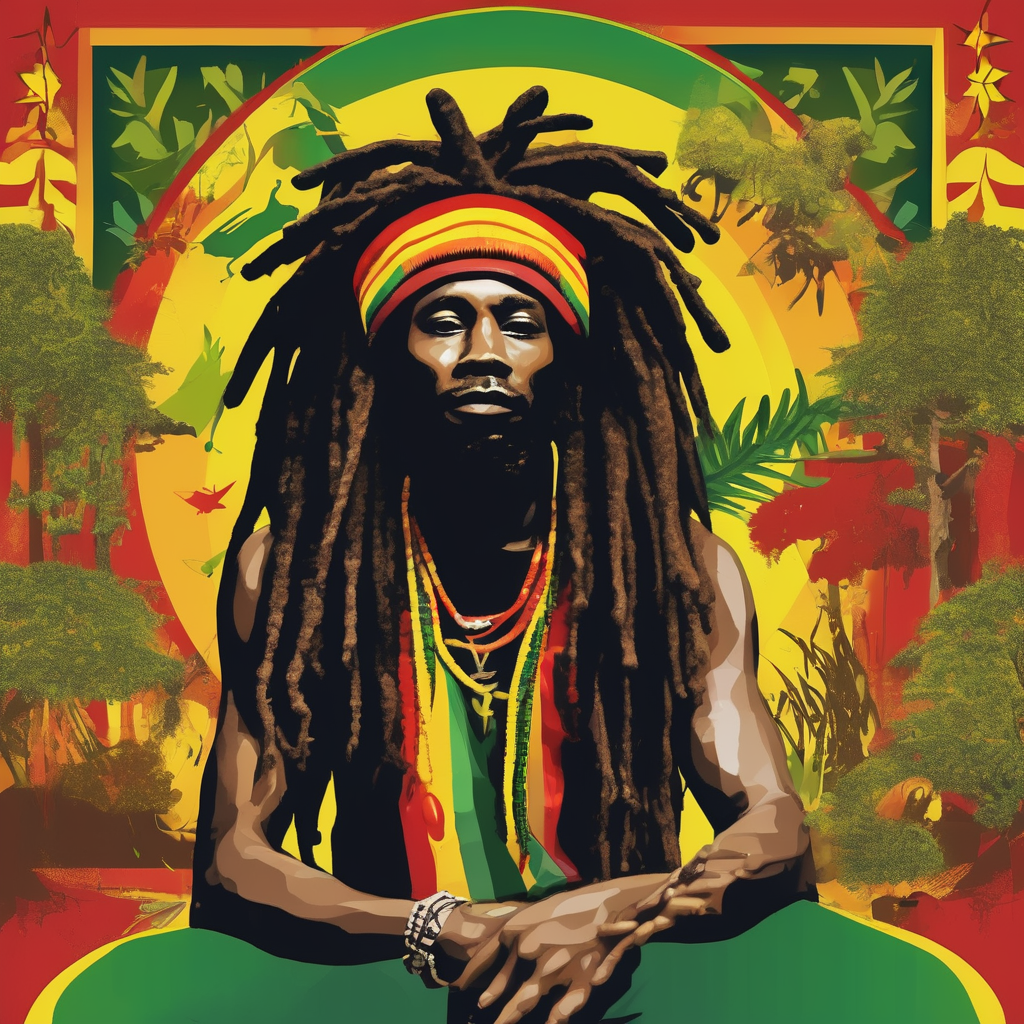Rastafarian culture is rich with traditions, and certain celebrations hold deep spiritual significance. These key holidays are not just about gathering, but also about honoring Jah, history, and di core beliefs of Rastafarianism. Each celebration serves as a reminder of di Rasta path – one rooted in resistance, spirituality, and connection to African heritage.
1. Grounation Day (April 21st)
Grounation Day is one of di most important holidays in Rastafarian culture. It marks di anniversary of Haile Selassie I’s visit to Jamaica in 1966. Selassie, di Rasta messiah, arrived on April 21st, and his visit is remembered as a powerful moment of divine affirmation.
On this day, Rastafarians gather to celebrate di presence of Jah on Earth through Selassie. Ceremonies often include drumming, chanting, and reasoning (spiritual discussions). Grounation Day is a time for Rastas to honor di legacy of Selassie and deepen their connection to Jah.
2. Ethiopian Christmas (January 7th)
While many celebrate Christmas on December 25th, Ethiopian Christmas is observed on January 7th by Rastas, reflecting di Ethiopian Orthodox Christian calendar. It’s a time for spiritual reflection, prayer, and community gatherings. Rastas see it as a day to celebrate di birth of Christ, who they believe was manifested in Haile Selassie I.
Rastas also use dis day to reconnect with their African roots and di traditions of Ethiopia, which is regarded as Zion, di Promised Land.
3. Ethiopian New Year (Enkutatash – September 11th)
Ethiopian New Year, called Enkutatash, is another key celebration for Rastafarians, as it aligns with their belief in Ethiopia as their spiritual homeland. Celebrated on September 11th, it is a time to honor Ethiopian culture, history, and di connection to Africa.
Rastas gather to share Ital food, sing spiritual hymns, and discuss their vision of repatriation – both physically and spiritually – to Ethiopia, which they see as a symbol of freedom and salvation.
4. Haile Selassie I’s Coronation Day (November 2nd)
On November 2nd, Rastas celebrate di coronation of Ras Tafari Makonnen as Emperor Haile Selassie I, which took place in 1930. This is a day of immense spiritual significance, as Selassie’s crowning fulfilled Marcus Garvey’s prophecy of a black king being crowned in Africa.
Rastafarians view this day as di divine crowning of Jah on Earth. Celebrations often include chanting, drumming, and meditation, as Rastas reflect on their spiritual journey and honor Selassie’s role as their messiah.
5. Marcus Garvey’s Birthday (August 17th)
Marcus Garvey, a Jamaican political leader and prophet in Rastafarianism, was born on August 17th. Rastafarians honor his legacy on this day, celebrating his vision of African unity, repatriation, and liberation. Garvey’s teachings laid di foundation for many Rasta beliefs, particularly di idea of returning to Africa (Zion).
On Garvey’s birthday, Rastas hold gatherings and discussions about di ongoing struggle for freedom and self-determination. It’s a day to remember Garvey’s prophetic words and continue di fight against oppression.
6. Niyahbinghi Celebrations
Niyahbinghi is a spiritual gathering held on key dates to honor Jah, Selassie, and important figures like Garvey. These celebrations feature traditional drumming (nyabinghi), chanting, and reasoning. Di term “nyabinghi” represents di Rastafarian resistance against Babylon (the oppressive system), and dese gatherings are an expression of Rasta unity and spiritual strength.
Rastas use Niyahbinghi celebrations to connect with Jah and each other, reaffirming their commitment to living naturally and righteously in di face of Babylon’s temptations.
Di Significance of Rasta Celebrations
Rasta holidays and celebrations are not just events – they are spiritual milestones. Each gathering serves as a way to reconnect with Jah, honor African heritage, and reflect on di teachings of figures like Haile Selassie I and Marcus Garvey. Through these celebrations, Rastas strengthen their sense of community, spiritual purpose, and resistance to di forces of Babylon.

